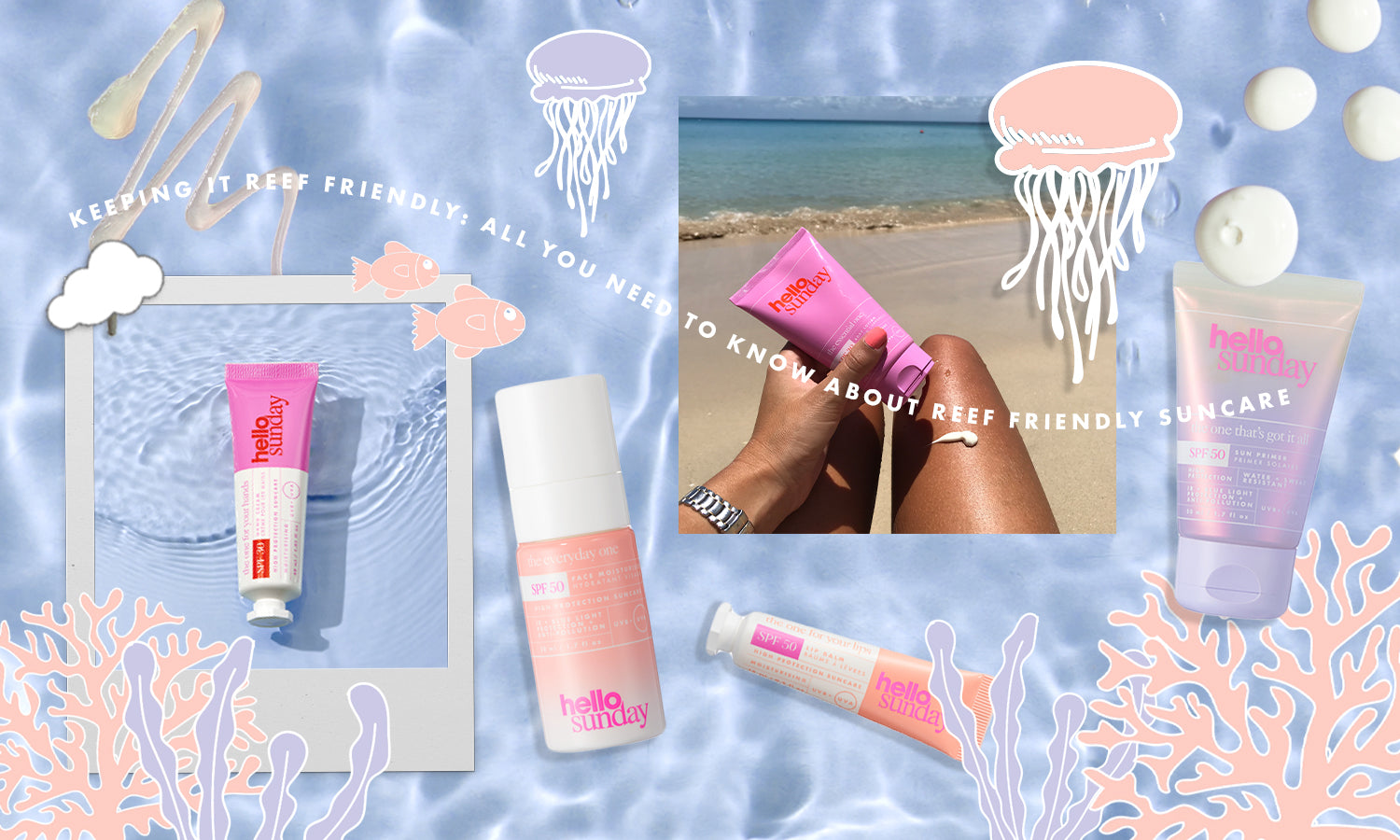
You know it’s gone tits up when ‘clean’ skincare starts getting called ‘dirty’ but we don’t blame you! With the lack of consistency in the ‘clean’ industry on what being a ‘clean’ brand actually means, it’s bound to get overwhelming. There’s a whole realm of things to cover surrounding the clean beauty industry but today ladies and gentlemen, we are focusing on down where it’s better, down where it’s wetter, under the sea! We’re talking all things reef friendly suncare and covering any questions you may have because just like everything, all it takes is a bit of breaking down and it’s quite simple. Let’s jump into it shall we?
What does ‘reef safe’ even mean?
‘Reef safe’ means different things across the world and with more research and news coming in everyday around certain chemicals used within sunscreen and their potential damaging effects to marine life. This information has become increasingly conflicting and what is becoming apparent is that the best way to be 100% reef safe would be to not wear any sunscreen at all, but then again we are slipping into being contradictory ourselves. Instead, we try to get as close to that 100% mark as we can.
We describe ourselves as ‘reef friendly’ as we constantly improve our formulations and products in order to be as respectful to sea life and the environment as we can. As of right now, we avoid Oxybenxone and Octinoxate, which are two sun filters that are banned by law in certain areas such as Hawaii and parts of Mexico.
What are Oxybenzone and Octinoxate? And why do we avoid them?
These are chemicals that protect the skin from UV rays by absorbing UVB and UVA rays as they decrease the amount of radiation that hits the skin. You would be surprised by how many products have these chemicals in them and it’s because they were FDA approved for years and provide broad spectrum protection and there was no real evidence of them being harmful to humans. At this point, you’re probably thinking ‘hey, they don’t sound too bad’.
However, in recent years studies have found that although there are no side effects for humans, the effects these chemicals have on coral reefs is detrimental. They cause coral reefs to lose their colour and become bleached. The reason the coral bleaches is because it expels the algae that makes it colourful, whenever it gets stressed by either pollution (non reef safe sunscreen being one pollutant), too much sunlight or temperature changes. The coral can let the algae back in if there is balance but if the conditions stay high stress, the coral doesn’t let the algae back in and eventually dies. Although, sunscreen is not the main cause of the damage to coral reefs. We need to take into account that human activity such as overfishing, snorkeling and coastal developments, to name a few, play a way bigger role in their destruction. But if you want to do your bit, reef friendly sunscreen isn’t a bad place to start!
This is a problem in and of itself as coral reefs are quite literally one of the biggest ecosystems on the planet. They provide food, shelter and protection to thousands of marine animals who face the risk of extinction without them. So yeah, we avoid oxybenzone and octinoxate, you should too.
Are mineral sunscreens better for the environment than chemical sunscreens?
All of our sunscreens avoid these ingredients to minimise our environmental impact. However, mineral based sunscreen made with zinc oxide and titanium dioxide are also a good shout when it comes to being reef friendly with your suncare.
If you’re still here after all that, and wanting to help protect the coral reefs we’ve got some quick tips for ya’:
- Use Hello Sunday sun care because it is in fact reef friendly!
- If you’re planning on taking a dip in the sea, try to use a water resistant sunscreen such as the essential one, the take-out one or the primer so that as much of the product stays on your skin meaning less of it gets left behind in the sea.
- Recycle your Hello Sunday products once you’re done with them! Rinse them out and chuck them in the right recycling bin, easy peasy!
PS: reef friendly sunscreen doesn’t compromise the level of protection you get, our formulas provide high protection suncare for every part of your body.
KEY TAKEOUTS:
- It’s impossible to be 100% reef safe when it comes to sunscreen, it would only be possible to do this by avoiding sunscreen (not a good idea either) so we aim to get as close to that 100% mark as we can
- Avoid oxybenzone and octinoxate at all costs
Secret code: SUN_CLASSES
